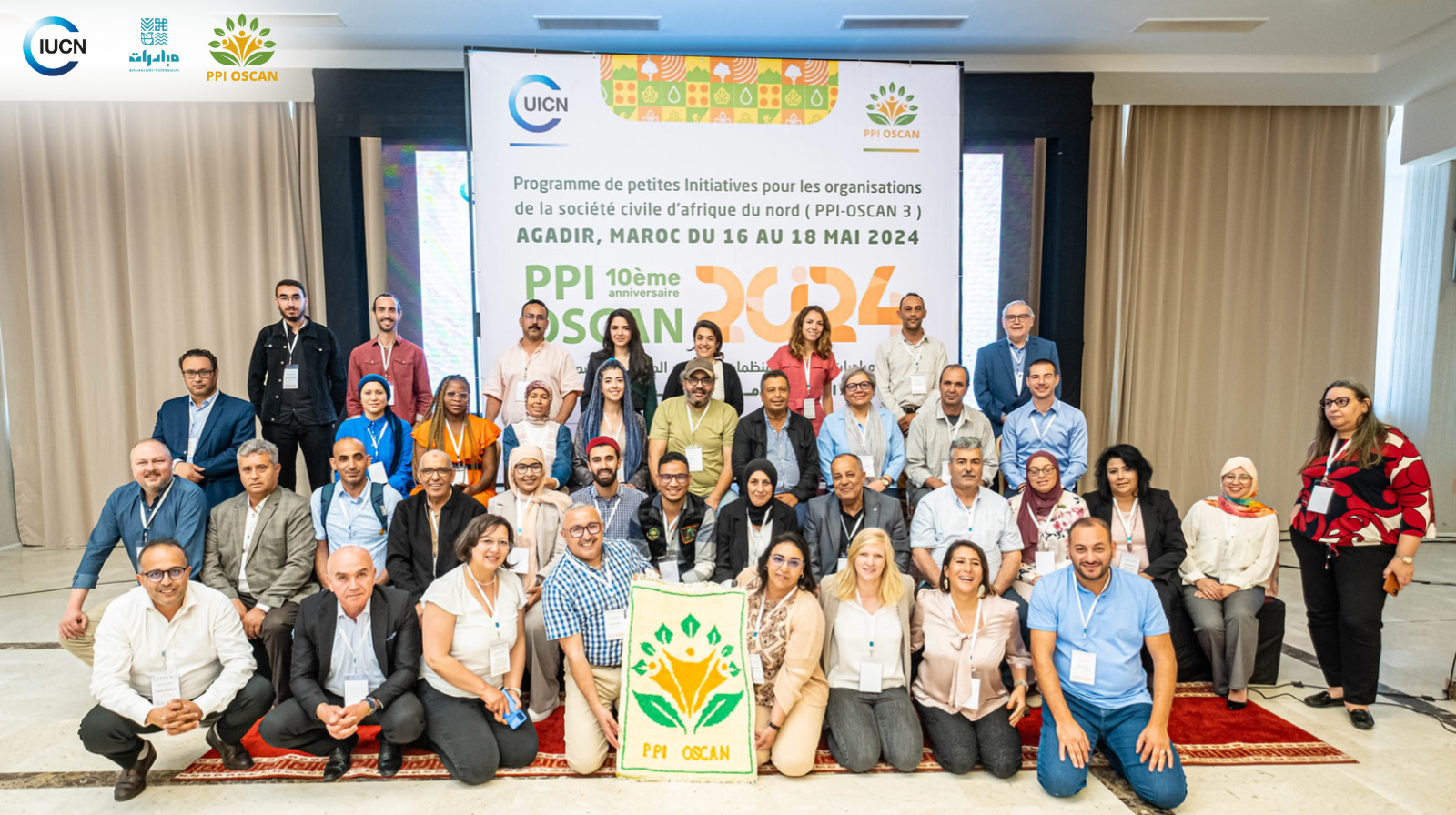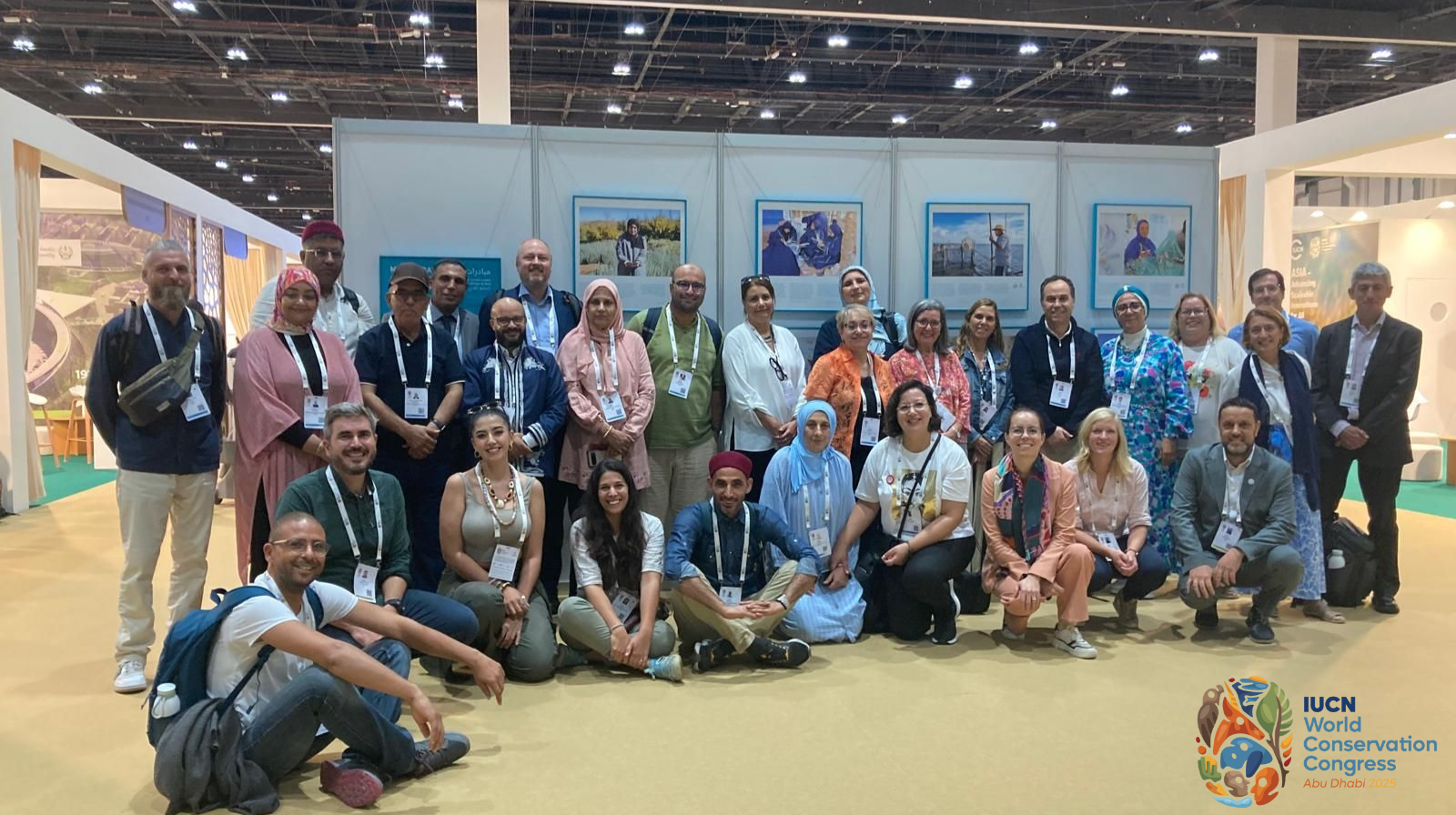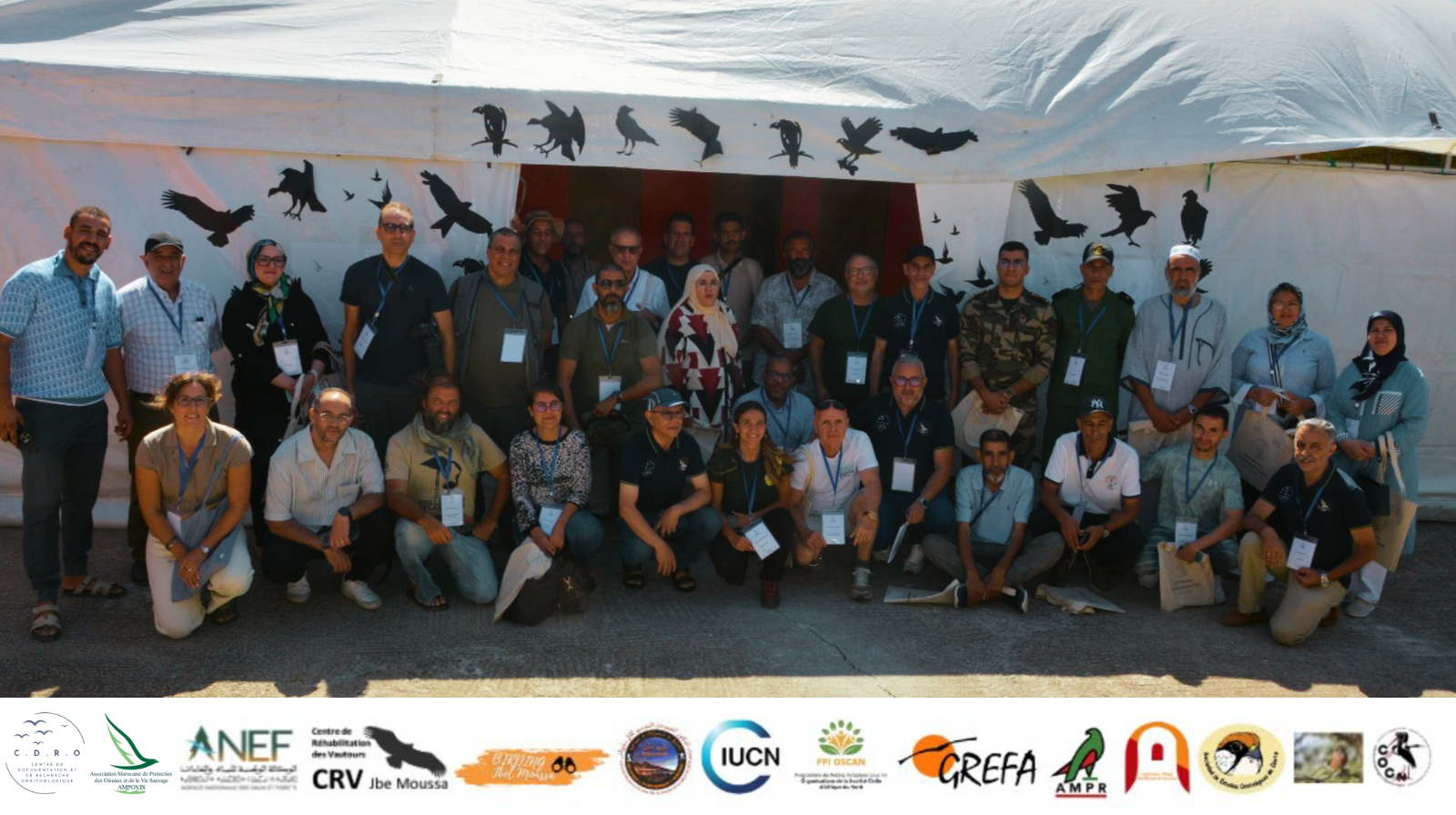How did the small association AMPESA become a key player in marine conservation in Al Hoceima, contributing to an increase in the brown grouper population and the creation of 19 jobs related to ecotourism?
For several years, Al Hoceima National Park has faced major challenges in conserving its marine biodiversity. The brown grouper, an iconic species listed as endangered on the IUCN Red List, has seen its population decline, while ecotourism has not yet emerged as an economic driver. It is in this context that the association Merou de Plongée, Environnement et Sports Aquatiques (AMPESA) began its journey, determined to preserve the marine wealth of the region and develop sustainable ecotourism.
Since the association was founded in 2016, resources have been limited, and conservation initiatives were restricted. With the support of the PPI OSCAN 2 program in 2018, AMPESA received its first essential support to strengthen its capacities, professionalize its work, and drive conservation and awareness initiatives.
PPI OSCAN 2: Professionalization and Growth (2018-2021)
During Phase 2 of the PPI OSCAN program, AMPESA focused on three main areas: training, mapping dive sites, and scientific monitoring. Dozens of divers were trained, not only to monitor marine ecosystems but also to safely oversee ecotourism activities. A mapping of dive spots helped identify the most attractive areas of the National Park, attracting visitors who care about marine biodiversity.
Scientific monitoring of the brown grouper provided a better understanding of its ecological role as a bioindicator, essential to the balance of marine ecosystems. In just three years, the park has become a popular destination for marine ecotourism, boosting the local economy while educating many visitors about the importance of marine conservation.
PPI OSCAN 3: Towards a Blue Economy and Enhanced Conservation (2021-2024)
Phase 3 was marked by significant advances. AMPESA expanded its scope by investing in ecotourism infrastructure, actively contributing to the blue economy of the region. Scientific monitoring was intensified with new equipment to collect precise data on the populations of brown grouper and other marine species. Continuing education integrated advanced technologies and new monitoring protocols, enhancing the skills of divers and conservation specialists.
These efforts paid off: an exceptional aggregation of six brown groupers (Epinephelus marginatus) and royal groupers (Mycteroperca rubra) was observed for the first time in a restricted area of Al Hoceima National Park—a first in the protected marine zone. This observation reflects the impact of AMPESA’s preservation and awareness efforts.

Concrete and Measurable Results
AMPESA’s actions have led to tangible results:
- Increased marine biodiversity: The population of brown grouper has significantly increased in protected sites, indicating the health of local ecosystems.
- Job creation: Three new dive clubs have been created in Al Hoceima. Nineteen jobs have been generated, ranging from divers joining local centers to specialists in underwater work.
- Ecological awareness: More than 500 young people from the region have been educated about marine conservation, strengthening their connection to the local environment.

A Sustainable Future for the Region
AMPESA’s ambition is clear: to continue these efforts beyond the current PPI OSCAN program. The association aims to strengthen the co-management of marine protected areas with the National Agency of Water and Forests, further develop ecotourism infrastructure to attract international visitors, and expand conservation initiatives to other marine species.
Summarizing the impact of these actions, the president of the association, Mr. Lyazghi Rabih, stated: “Thanks to the continued support of the PPI OSCAN, AMPESA has become a concrete example of the positive impact of local initiatives, inspiring other organizations to engage in environmental preservation.”
The progress made since 2016 is impressive, and AMPESA is determined to continue leading the way towards better marine biodiversity conservation and sustainable ecotourism in Al Hoceima National Park.
Discover more about the innovative project of AMPOVIS here:https://mubadarat-uicn.org/ppi-oscan-3-ampesa-association-merou-de-plongee-environnement-et-sports-aquatiques/
For more information about AMPESA and their activities, visit their website https://associationmerou.org or follow them on social media at https://www.facebook.com/ASS.AMPESA/.
This project is implemented under the third phase of the Small Initiatives Program for Civil Society Organizations in North Africa (PPI OSCAN), funded by the French Global Environment Facility (FFEM), the MAVA Foundation, and the Sigrid Rausing Trust. The subsidized projects aim at the conservation of species and ecosystems with remarkable biodiversity and at enhancing the benefits of conservation and sustainable livelihoods. To learn more about the PPI OSCAN 3 projects: 5. Projects – MUBADARAT (mubadarat-uicn.org)









